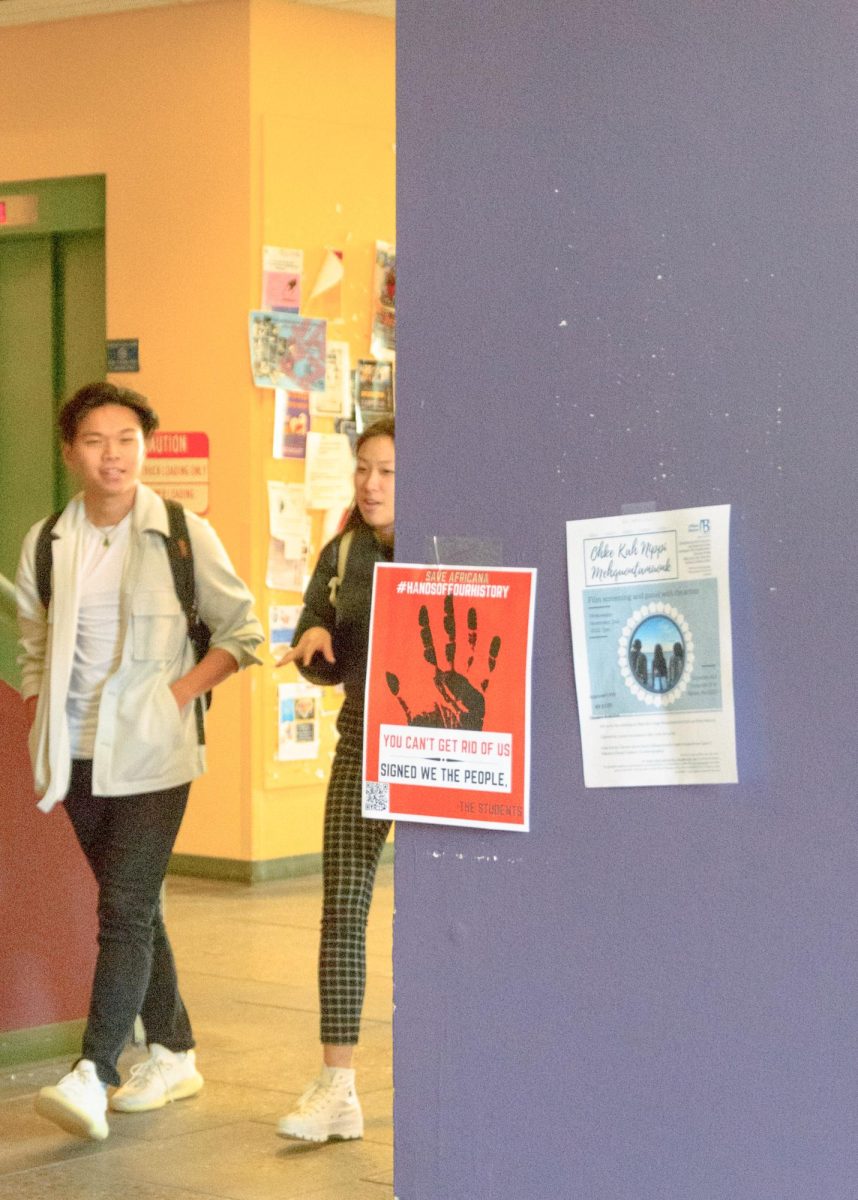On Wednesday, March 20, at a press conference held in the Africana Studies Department Conference Room on the fourth floor of Phillis Wheatley Hall, faculty from the Africana Studies Department explained their decision to file complaints against UMass Boston administration for discrimination and retaliation. The plaintiffs in the case are Dr. Jemadari Kamara, Dr. Tony Menelik Van Der Meer and Dr. Keith Jones.
At the conference, faculty stated that two events triggered the case: the removal of Jemadari Kamara from his position as department chair—who was then replaced with a university-appointed chairperson—and the prevention of professors from attaining tenure positions.
The last time the department was fully staffed was in 2016, when it had seven full-time faculty members, six of whom were tenured. Today, there is only one full-time tenured professor and two full-time non-tenured faculty members.
Additionally, faculty stated that daily interactions with UMass Boston administration created a hostile work environment. Examples included people avoiding eye contact with department members and refusing to speak to them entirely. They stated this was especially prominent after the work they did in 2020 and 2021 to aid the campus in becoming an “anti-racist and health-promoting public research institute” in the wake of protests over the death of George Floyd.
Faculty also mentioned that UMass Boston administration spent $250,000 to report on Africana Studies and anti-racism on campus, in the same semester that 30 percent of departmental courses were cut. Africana Studies faculty stated that they were not allowed to view the report, but none of their interviews were included in the report summary.
Additionally, faculty stated that the university failed to appropriately fund department events. According to the department, students were unable to get college credit and funding for a planned trip to Selma, despite other similar trips being funded and credited.
Dr. Van Der Meer believes that the problems facing their department are not singular to UMass Boston.
“It’s a national pattern that has to be addressed, and it’s about the leadership at this university,” he said. “They create an image of inclusion, when really, it’s exclusive.”
The Africana Studies Department has submitted these problems as a formal complaint, and the university has 90 days to respond with a written document before the case can be brought to court. Attorney John Pavlos, the representative for the Africana Studies faculty, explained their intentions during the conference.
“If we’re not satisfied within 90 days that there’s been sufficient progress in the investigation, then we can remove it to a court of law, either the Federal Court or the Superior Court of Massachusetts,” said Pavlos. “And we clearly intend to do that.”
The investigation Pavlos refers to is being conducted by an investigator from the Massachusetts Commission Against Discrimination. In a press release prior to the conference held at Phillis Wheatley Hall, Pavlos also stated, “At this historical moment, to have my clients facing employment-based discrimination, racial bias, hostile work environment and retaliation by University of Massachusetts administration is not only illegal; it is absolutely appalling and shameful. Massachusetts is not Florida. Such hostility and retaliation has caused significant harm to their personal lives and professional reputations.”
It was also shared that the decision to file a suit against university administration came after repeated attempts to meet with the chancellor and provost to resolve any hostility toward the Africana Studies Department.
“There was a way to avoid all of this if people just listened,” said Dr. Carroy Ferguson, a tenured faculty member and former Dean at UMass Boston.
The department is not the only group disappointed in administration at this time. On March 14, a group of UMass Boston alums and previous members of the Black Student Center, Casa Latina and the Haitian Student Center sent a letter to administration titled, “The Decimation of the Africana Studies Department at UMass Boston.”
Their letter emphasized the importance of the Africana Studies Department, stating that adequate classes devoted to this learning is a civil right.
“Learning our Black, African, and Caribbean histories in the context of critical thinking at a college level at UMass Boston created pivotal shifts in our personal development and lives,” the letter stated. It goes on to demand immediate action from the university in the form of an “agreed upon strategic plan, financial support, moral and just commitment, [and] the review and/or amendments of the recent hiring search processes…”


